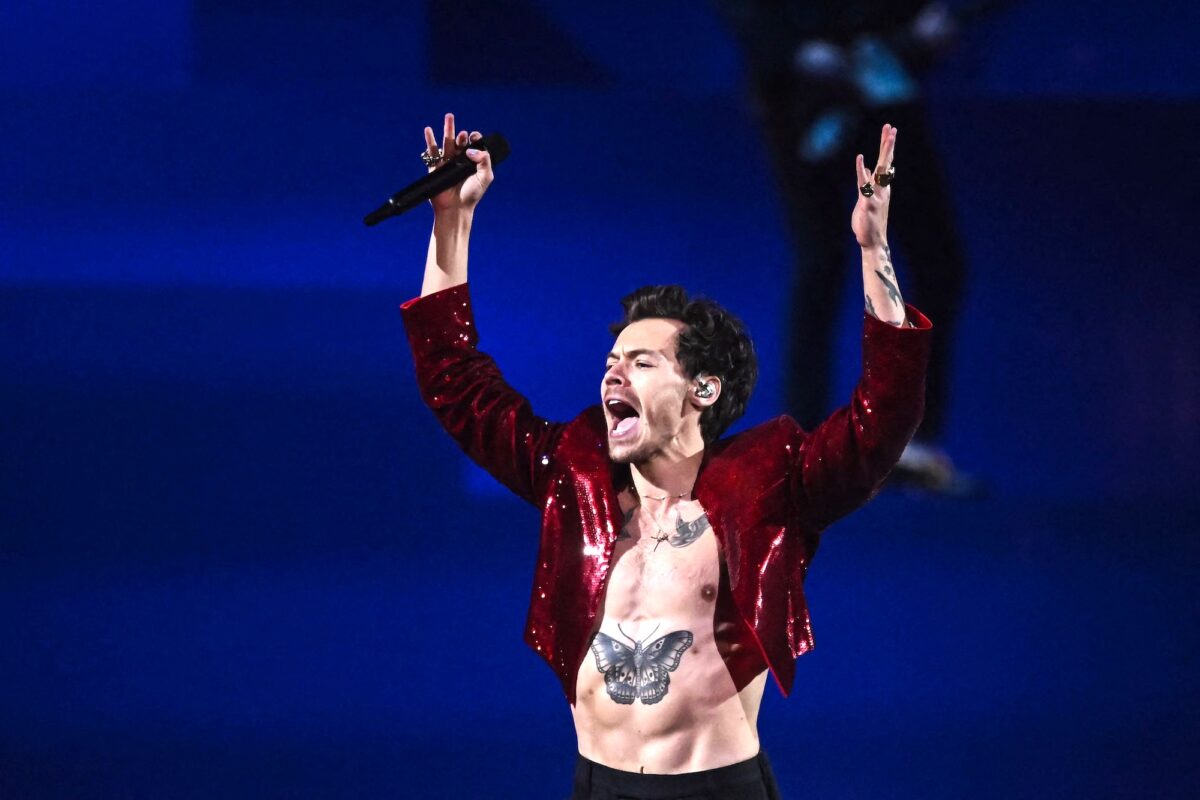Women have fought long and hard for the right to choose what they wear when they compete at the Olympics, and at the Tokyo Games more and more athletes and fans are speaking out and taking action
By Richa Naidu and Gabrielle Tétrault-Farber | Photos by/Dylan Martinez
TOKYO (Reuters) – German gymnast Kim Bui wore a unitard in the women’s all-around final. Her teammate Elisabeth Seitz chose not to.
“I just stood in front of my cupboard and there was a unitard and there was a traditional one,” Bui, 32, said. “I just decided for the unitard because today I thought I felt more comfortable with a unitard.”
Bui and Seitz are allowed by the International Gymnastics Federation to wear what they want when they compete, but not all female athletes are given that luxury. Some—like the Norwegian beach handball players who last month refused to wear skimpy bikinis—face being punished by their sport’s governing bodies.
Women have fought long and hard for the right to choose what they wear when they compete at the Olympics, and at the Tokyo Games more and more athletes and fans are speaking out and taking action.
Clothing brands are no different, as they seek to tap the global women’s activewear market that is expected to be worth $217 billion by 2025, according to data firm Allied Market Research.
“This Olympics, women are really taking center stage,” Nike’s creative director Tania Flynn said. “It’s not necessarily a new conversation, but one that’s really at a head
“In the past, we’ve gotten rules changed,” Tania Flynn, Nike’s creative director of women’s apparel, told Reuters, declining to provide specifics. “Whether it’s a certain color change or a certain design etc.”
“This Olympics, women are really taking center stage,” Flynn said. “It’s not necessarily a new conversation, but one that’s really at a head.”
To make room for the powerful quadriceps of soccer players who need to kick with a full range of motion, for instance, Nike cuts the front of their shorts higher. But because some athletes want a “little bit more coverage in the back for modesty”, the back of their shorts are longer.
A lil razzle dazzle
In addition to aesthetics and modesty, comfort is a major factor.
Raven Saunders, silver medalist in the women’s shot-put, wore a tank top and briefs to beat the heat during the finals, which took place on one of the hottest days of the Games so far.
Hours before the event began, she wrote on Twitter: “They say it’s gone be hot in Tokyo so Imma wear them sprinter panties this time around. Add a lil razzle dazzle.”
Good morning to @GiveMe1Shot and @GiveMe1Shot only 👑 pic.twitter.com/1GufhfAYRh
— TOGETHXR (@togethxr) August 1, 2021
US runner Athing Mu, who won a gold medal in the Olympic women’s 800 meters final, wore Nike Aeroswift briefs and a crop top in her first preliminary race. In the semifinals, on a hotter day, she combined the same briefs with a more snug crop top that had a zipper for additional ventilation. For the final she chose a dramatic hot pink unitard.
Mexico 1968: Madeline Manning#TokyoOlympics: Athing Mu@athiiing earns @TeamUSA its first gold medal in the women's 800m final in 53 years, with @TheROYALlife21 Raevyn Rogers joining her on the podium for Bronze.
— NBC Olympics & Paralympics (@NBCOlympics) August 4, 2021
📺: NBC
💻: https://t.co/xHOJq5UwlD
📱: NBC Sports App pic.twitter.com/QH5jYjcby2
Adidas, which equips teams from Britain, Germany, Hungary, and Ethiopia, makes a variety of outfits including crop tops and tights that are “period-proof.” It makes female competition wear for beach volleyball, climbing, tennis and other sports.
“We want to make an inclusive offer that includes all body types and different tastes,” Adidas told Reuters. “We invite in our athlete’s voices, working closely with diverse groups of women from around the world”
“We want to make an inclusive offer that includes all body types and different tastes,” Adidas told Reuters. “We invite in our athlete’s voices, working closely with diverse groups of women from around the world.”
Of course, like Seitz on the German gymnastics team, not every woman wants to cover up.
“I think it was good that they dared to wear it because, I don’t know if you saw, but I was wearing a thong on the floor,” said French gymnast Melanie De Jesus Dos Santos said after the women’s team final.
“Sometimes for a girl it’s complicated.”
(Reporting by Richa Naidu and Gabrielle Tetrault-Farber; Editing by Leela de Kretser and Hugh Lawson)














































